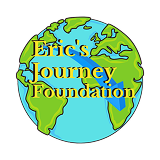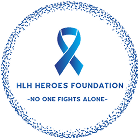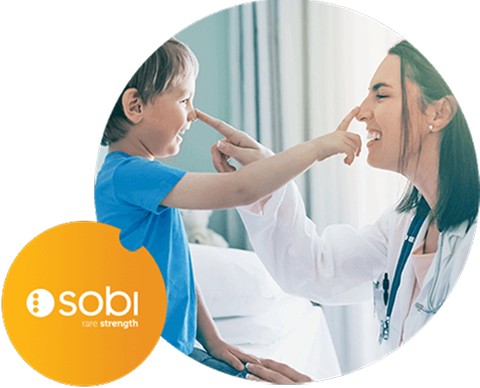Resources
Help for the primary HLH treatment journey
Resources for you and your patients
Help guide your patients and their caregivers along the treatment journey with these tools and resources.
Primary hemophagocytic lymphohistiocytosis (HLH)
CXCL9 testing brochure
Information about the relationship between IFNγ and CXCL9 and the value of CXCL9 testing
Gamifant®
(emapalumab-lzsg)
Gamifant full Prescribing Information
Dosing and administration guide
Information about dose titration, preparation, and administration of Gamifant
Clinical overview
A guide to Gamifant pivotal trial data
Advocacy groups

The Eric's Journey Foundation is dedicated to raising awareness about hemophagocytic lymphohistiocytosis (HLH) and other histiocytic disorders. The organization also provides support for patients, families, and friends dealing with these diseases.

Founded in 2021 by parents of affected children, the HLH Heroes Foundation is on a mission to provide support to individuals and families impacted by primary HLH to spread their message: No One Fights Alone.

Histiocytosis Association provides educational materials, peer/physician networking opportunities, and a physician directory for treatment/second opinions. The organization also offers staff to assist families with awareness, advocacy, and programs to raise funds for research.

Liam’s Lighthouse Foundation (LLF) is a nonprofit, tax exempt organization established to increase awareness of HLH and other histiocytic disorders. The organization focuses on bringing the families affected together, offering support through a variety of programs, and raising much-needed funds for continued research and education at leading medical institutions.

Founded in 1980, the Immune Deficiency Foundation (IDF) is a national nonprofit patient organization dedicated to improving the diagnosis, treatment, and quality of life of persons with primary immunodeficiency (PI) diseases through advocacy, education, and research. IDF provides accurate and timely information and valuable resources for patients and families living with PI, including HLH.
Transplant resources
BMT InfoNet 

BMT InfoNet is an organization for bone marrow, stem cell, and cord blood transplant patients. It empowers patients and caregivers with knowledge through its website, video learning library, patient books, and symposiums. BMT InfoNet also provides personal guidance and a one-on-one peer support program.
NMDP 

Over the past 30 years, NMPD® (previously Be The Match®) has managed the largest and most diverse marrow registry in the world. Their team works every day to save lives through transplant.
A rare dedication
At Sobi, we focus on ultra-rare diseases, which can affect just hundreds or even dozens of patients. These patients have many critical unmet needs, yet are frequently overlooked by the healthcare industry.
We are dedicated to providing access to innovative treatments that make a significant difference in the lives of individuals with ultra-rare diseases.
We work closely with patients, caregivers, and advocacy organizations to understand and address the challenges they face throughout their journey, from infancy to adulthood. And we keep innovating to meet their evolving needs, serving as a trusted partner for life.
